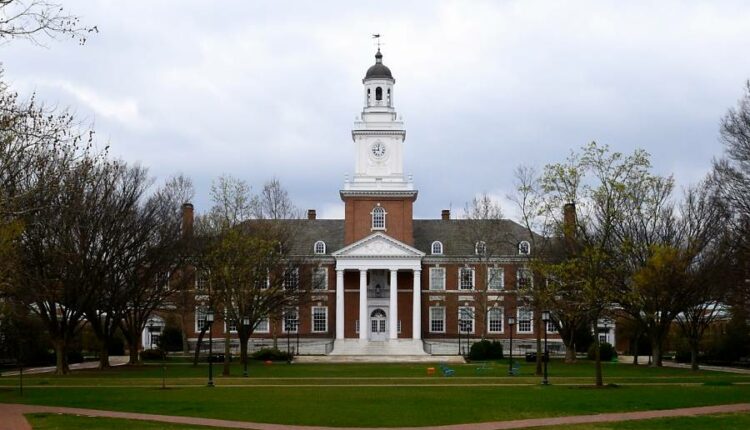Johns Hopkins University: Doctor Brings Passion for Music to Medicine During Pandemic
Since the start of the pandemic, Johns Hopkins Hospital pulmonologist Brian Garibaldi, M.D., has cared for about 150 patients with COVID-19, including former President Donald Trump and many patients in the intensive care unit, and has led important research to find lifesaving treatments for COVID-19. Just like many health care professionals, Garibaldi, the medical director of the Johns Hopkins Biocontainment Unit, has felt the stress of providing care to patients suffering from a new, and often deadly, disease.
“Being on the front lines has been the most important part of my career,” Garibaldi says.
To help him cope with the stressors of the pandemic and support his overall well-being, Garibaldi has tapped a favorite hobby: making music. Garibaldi has played guitar since the sixth grade and has been a member of bands that played rock, pop and blues. Before attending medical school, he also spent a year studying flamenco guitar in Spain.
“It was an amazing experience, but I didn’t see myself as a professional musician,” he says. “I’ve always been more drawn to the medical field and patient care.”
Throughout his career as a physician, Garibaldi has continued to perform music — from his own compositions to classical guitar favorites and acoustic rock covers — at weddings or other events about two times a year. Garibaldi, who keeps a guitar in his office, has also used music as a way to connect with patients, particularly those who enjoy music or play themselves.
“Hospitals can be stressful,” Garibaldi says. “Patients can be going through challenging times, and being able to have normalcy while they are in the hospital is often helpful.”
In early 2020, as COVID-19 was beginning to spread worldwide, Garibaldi helped create protocols and best practices at Johns Hopkins, including the proper personal protective equipment needed for staff. That March, he oversaw the treatment of the first patients with the disease. He has published at least 20 peer-reviewed papers on COVID-19 that have helped inform clinical decisions about how health care providers safely care for patients, such as studying remdesivir, an antiviral medication originally developed to treat hepatitis C and , a medicine to treat inflammatory conditions like rheumatoid arthritis, as treatments for COVID-19 and risk factors, such as older age and obesity, for severe disease and death from COVID-19.
Through it all, music has been his therapy, whether jamming out in his makeshift home studio or writing and composing songs.
“There’s been a lot of uncertainty and concern about what’s been happening around the world and being in constant crisis mode,” Garibaldi says. “It’s one of the few things that I do where I can completely shut my mind off. It’s been incredibly relaxing to take five minutes to do something I love.”
Garibaldi was recently inspired to write a guitar piece to accompany a poem called When the Dust Settles, by Robin Lewis-Cherry, a nurse manager at The Johns Hopkins Hospital, as a reflection on the challenges and lessons from living and working through the pandemic.
“Music has been the main thing that has kept me sane,” Garibaldi says. Loved ones “can tell if I haven’t played music for a while, because I get irritable.”
Garibaldi is available for interviews on his passions for medicine and music, creating and playing songs as therapy during the pandemic, and how it has helped him connect with patients.

